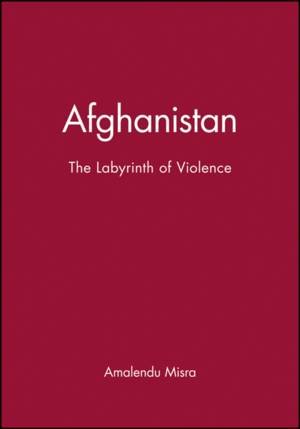
- Afhalen na 1 uur in een winkel met voorraad
- Gratis thuislevering in België vanaf € 30
- Ruim aanbod met 7 miljoen producten
- Afhalen na 1 uur in een winkel met voorraad
- Gratis thuislevering in België vanaf € 30
- Ruim aanbod met 7 miljoen producten
Zoeken
Omschrijving
Afghanistan has become synonymous with violence. In the past 25 years alone, the country has endured Russian invasion and occupation, civil war and a US-led military campaign, resulting in the combined loss of over 2 million lives, most of them civilian. Even now, following the overthrow of the Taliban regime, old ethnic animosities have resurfaced which seem likely to push the country into another spell of internal war.
But why is it that Afghanistan has experienced such bloody conflict and slaughter? What factors have allowed the country to be exploited by external powers who have intervened to determine its politics, social structure and, consequently, its place in the world?
In this fascinating new book, Amalendu Misra seeks to provide answers to these pressing questions. By analysing the nature of conflict in Afghanistan, he exposes the various geopolitical, ethnic, economic and religious variables which have contributed to the breakdown of the Afghan state, and ponders whether post-war reconstruction could lead to a more democratic and peaceful Afghanistan.
But why is it that Afghanistan has experienced such bloody conflict and slaughter? What factors have allowed the country to be exploited by external powers who have intervened to determine its politics, social structure and, consequently, its place in the world?
In this fascinating new book, Amalendu Misra seeks to provide answers to these pressing questions. By analysing the nature of conflict in Afghanistan, he exposes the various geopolitical, ethnic, economic and religious variables which have contributed to the breakdown of the Afghan state, and ponders whether post-war reconstruction could lead to a more democratic and peaceful Afghanistan.
Specificaties
Betrokkenen
- Auteur(s):
- Uitgeverij:
Inhoud
- Aantal bladzijden:
- 232
- Taal:
- Engels
- Reeks:
- Reeksnummer:
- nr. 1
Eigenschappen
- Productcode (EAN):
- 9780745631158
- Verschijningsdatum:
- 21/05/2004
- Uitvoering:
- Paperback
- Formaat:
- Trade paperback (VS)
- Afmetingen:
- 139 mm x 214 mm
- Gewicht:
- 294 g

Alleen bij Standaard Boekhandel
+ 79 punten op je klantenkaart van Standaard Boekhandel
Beoordelingen
We publiceren alleen reviews die voldoen aan de voorwaarden voor reviews. Bekijk onze voorwaarden voor reviews.











